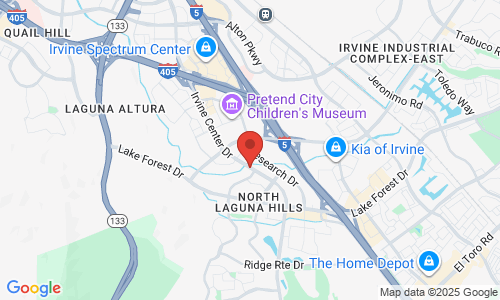Brachial Plexus Injury at Birth
 The majority of babies in the United States are born without any injuries. However, every birth has the chance to result in some type of trauma for the infant. Among the birthing injuries that do occur, a brachial plexus injury is one of the most common.
The majority of babies in the United States are born without any injuries. However, every birth has the chance to result in some type of trauma for the infant. Among the birthing injuries that do occur, a brachial plexus injury is one of the most common.
Sadly, a brachial plexus injury at birth is often the result of medical negligence. When a child is injured during the birthing process because of substandard medical care, their parents should consider filing a medical malpractice lawsuit. The birth injury lawyers at Burke Argos can provide legal representations to individuals in Irvine, CA, and surrounding areas as they fight to collect financial compensation for birth injury damages.
Types of Brachial Plexus Injuries
The brachial plexus is the network of nerves that connects the spinal cord to the arms and hands. These nerves control feeling and movement in the shoulders, arms, and hands. During a difficult birth, excess force on the neck, shoulders, or arms can cause these nerves to be injured. There are several types of brachial plexus injuries that may occur, each of varying degrees of severity:
- Neuropraxia: Neuropraxia is the least severe type of brachial plexus injuries. This type of injury occurs when the nerves are stretched.
- Neuroma: Some neuropraxia injuries lead to neuroma. In these cases, scar tissue develops on the nerves as they heal from being torn.
- Rupture: A rupture is a more serious type of brachial plexus injury. A rupture is a tear in part of the brachial plexus nerves.
- Avulsion: The most severe type of brachial plexus injury is an avulsion. When an avulsion occurs, the root of the nerve completely separates from the spinal cord.
Side Effects of Brachial Plexus Injuries
Brachial plexus injuries can compromise movement or function in the shoulders, arms, wrists, or hands. Some of the most common side effects of a brachial plexus injury for our Irvine clients include:
- Numbness or tingling in the arms or hand
- An arm that hangs limply
- Limited range of motion in the shoulder or arm
- Muscle weakness
- Complete loss of feeling in the arm or hand
- Inability to control movement in the arm, wrist, or hand
Less severe brachial plexus injuries often respond well to treatment such as physical therapy, so that side effects diminish within a few weeks or months of the child’s birth. However, more serious injuries can result in permanent damage and lifelong disabilities.
What Causes Brachial Plexus Birth Injuries?
Brachial plexus injuries are most common when a baby is large, is in the incorrect position, or when a quick or emergency delivery is required. Often, brachial plexus injuries are preventable, and are the result of medical negligence or incompetence. Common causes of brachial plexus injuries include:
- Incorrect use of forceps or vacuum devices
- Forcibly pulling on the baby’s arm or shoulder
- Failing to detect birth complications
- Failing to perform a Cesarean section to avoid complications
Compensation for Damages
If a brachial plexus injury is the result of medical negligence, the baby’s family can seek financial compensation through a medical malpractice lawsuit with our Irvine attorneys. Damages may be rewarded for both financial and non-financial losses, such as:
- Medical expenses
- Anticipated cost of future therapy or rehabilitation
- Lost wages (if a parent takes time off work for the child’s medical care)
- Pain and suffering
Contact Us
If your child suffered a birth injury due to medical negligence, we can help you hold the responsible parties accountable. The attorneys at Burke Argos can listen to the details of your case and advise you on your best course of legal action. To learn more, reach out to our legal team at your earliest convenience or call (949) 438-4416.
